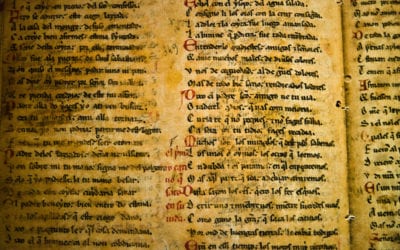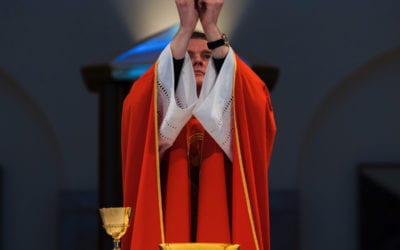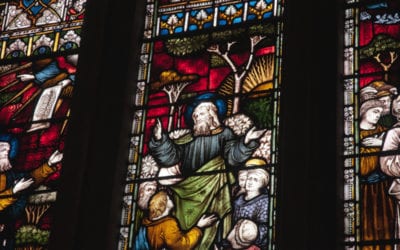The Catholic Church asserts that Peter was the rock on which God built the worldwide Church. Their belief is that the following scripture established Peter as the first Pope.
And I tell you that you are Peter, and on this rock I will build my church, and the gates of Hades will not overcome it. (Matthew 16:18)
However, Peter interpreted the above conversation in a different way. Peter wrote that the primary rock (cornerstone) of the Church is Jesus. He further identified Christ as being “the living stone” and believers as being “like living stones.”
“As you come to him, the living Stone—rejected by men but chosen by God and precious to him—you also, like living stones, are being built into a spiritual house to be a holy priesthood, offering spiritual sacrifices acceptable to God through Jesus Christ. For in Scripture it says: “See, I lay a stone in Zion, a chosen and precious cornerstone, and the one who trusts in him will never be put to shame.” (1 Peter 2:4-6)
Peter’s interpretation was consistent with the Old Testament, which also identified the “rock” as being the Lord. Isaiah wrote, “Trust in the Lord forever, for the Lord, the Lord himself, is the Rock eternal.” (Isaiah 26:4)
In a similar manner, Apostle Paul identified the primary rock (cornerstone) as being Christ. Paul wrote that the Church was “built on the foundation of the apostles and prophets, with Christ Jesus himself as the chief cornerstone.” (Ephesians 2:20)
The infallibility of the Pope is a central Catholic doctrine. Yet the doctrine of “Pope Peter” was flawed. Had this doctrinal error continued, circumcision would be a requirement for male believers today. Concerning this error, Paul wrote, “When Peter came to Antioch, I opposed him to his face, because he was clearly in the wrong.” (Galatians 2:11)
Ancient Rome Established Pontiffs
That Jesus made Peter the first Pope is – if nothing else – historically inaccurate.
The position of Pontifex Maximus (
Caesar Augustus was the Pontiff at the time of Jesus’ birth. Scripture records concerning the time of Jesus’ birth… “In those days Caesar Augustus issued a decree that a census should be taken of the entire Roman world.” (Luke 2:1)
Today, the Pope’s garments contain designer crosses and pagan symbols. Jesus ridiculed Jewish leaders who wore robes with “phylacteries and tassels” to make themselves appear holy.
“Everything they do is done for men to see: They make their phylacteries wide and the tassels on their garments long; they love the place of honor at banquets and the most important seats in the synagogues; they love to be greeted in the marketplaces and to have men call them ‘Rabbi.’ “But you are not to be called ‘Rabbi,’ for you have only one Master and you are all brothers. And do not call anyone on earth ‘father,’ for you have one Father, and he is in heaven. (Matthew 23:5-9)
Jesus described both the Pharisees (Rabbis) of
Ten Commandments
The Ten Commandments are among the initial religious values taught to children. The Roman Catholic Church teaches only nine of these commandments. The second commandment forbids idolatry. Catholic teaching conceals this command to conceal the idolatry that permeates...
Communion
The early Catholic position about bread and wine becoming the literal body and blood of Christ was clearly stated. For example, the Council of Trent (1551 AD) wrote, “a change is brought about of the whole substance of the bread into the substance of the body of...
Saints
The word “saints” is synonymous with “believers.” Paul’s letters were addressed to the saints of various churches.
Tradition
Catholic rules prevent priests and nuns from marrying, while forbidding specific food, such as meat on Fridays during Lent. Paul foretold these two requirements two thousand years ago, calling them things taught by demons. “The Spirit clearly says that in later...
The Blood Covenant
The Lord confides in those who fear him, he makes his covenant known to them. (Psalm 25:14)Salvation is only through a personal, covenant relationship with God. This is the covenant I will establish with the people of Israel after that time, declares the Lord.I...




